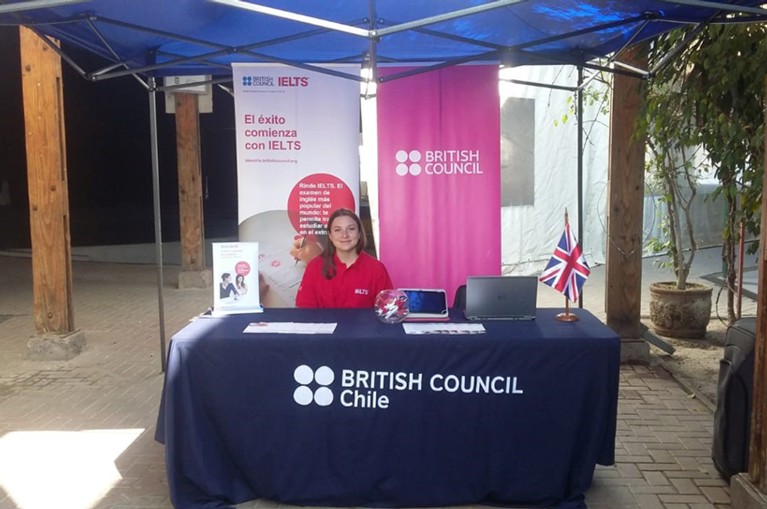Eileen – British Council in Chile
In the summer of 2019, I travelled to Santiago, Chile, to work with the British Council, the UK’s international organisation for cultural relations and educational opportunities.
 The British Council works in over 100 countries to promote cultural, scientific, technological and educational co?operation with the United Kingdom. In Chile, the focus is primarily on English and Education & Society.
The British Council works in over 100 countries to promote cultural, scientific, technological and educational co?operation with the United Kingdom. In Chile, the focus is primarily on English and Education & Society.
During my internship the British Council participated in the International Seminar #MasNiñasEnCiencias (#MoreGirlsInScience) as part of its commitment to reduce the gender gap in STEM. One of the key programmes developed by the British Council in Chile is #CoreSkills, which has trained over 200 teachers in regions outside of Santiago to teach programming to students and strengthen ‘21st century skills’ such as digital literacy, leadership, communication and collaboration. As part of my work I was able to help with the facilitation of an agreement between the Chilean Senate and the British Council for the former to support this programme. This is particularly important as one of the biggest problems in Chile, an immense country with vastly spread out cities and towns, is the lack of opportunities in the regions and the concentration of resources in Santiago. The commitment of the Senate in investing in education in the regions is an important step towards recognising this imbalance. As well as the inequality between Santiago (the ‘Metropolitan Region’) and other parts of Chile, collectively known as ‘regiones’, I was also struck by the inequality within Santiago itself. The cost of living is incredibly high, and Chile has the strongest economy in the Americas region. However, this means that there are two realities in Santiago, and the divide between rich and poor is quite striking.
Chile is the most unequal country in the OECD, and one of the most unequal countries in one of the most unequal continents. In Chile, 1% of the population retains 33% of the overall wealth. This is a problem that is perpetuated by the education system, which is extremely stratified, and by the extremely expensive higher education system. The wealthiest families send their children to private schools that prioritise the teaching of English, while those attending state schools receive generally poor-quality education and don’t have the same opportunities to learn English. Some of the most rewarding work I did with the British Council was visiting schools in the poorer neighbourhoods of Santiago to meet students and distribute the British Council’s free English learning resources, as the majority of students I met showed a huge desire to learn English but don’t have access to the necessary resources.
The internship was a really valuable experience to learn about the role of international organizations and governments in educational policy, and I gained an understanding of the challenges and stopping blocks in the process of creating change on a national level. Santiago is a fascinating city to live in and I loved being able to immerse myself in Chilean culture.


